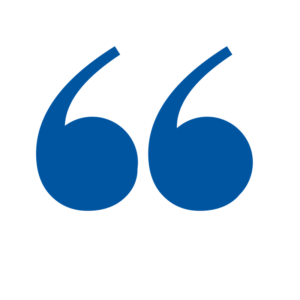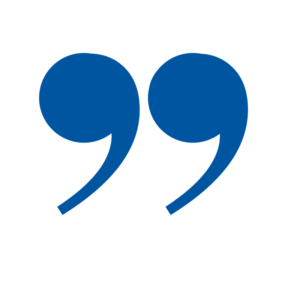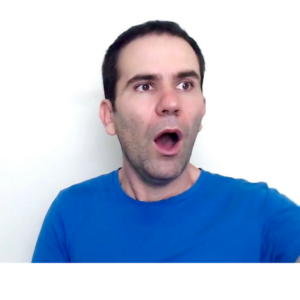Lesson Summary
In this lesson we focus on the three main Future Simple tenses in everyday conversation:
– Be + going to
– Will
– Be + verb ing (Present Continuous)
And how to use them effectively in conversation.
At the start of the video I talk about my plans for the weekend. Take a look at the different future tenses that I use:

What’s happening this weekend?
What are you doing this weekend?
This weekend I’m going to (gonna) catch up with my cousin in Manly which is a beachside area, a beach suburb in Sydney. I think we‘re going to go and get some breakfast and have a chat.
Saturday night. I’m not sure what I’ll do Saturday night. I think I’ll just watch a movie at home. Just chill out, you know. Don’t know, maybe I’ll call my friend and we can catch up.
On Saturday morning I’m actually meeting up with my friends and we’re going for a run in the park. We do that every Saturday morning. 
What are you doing next week?
As you can see, there are a few ways we can talk about our future plans. Here I use three common Future Tenses;
BE + GOING TO + INFINITIVE VERB
- I’m going to catch up with my cousin.
WILL + INFINITIVE VERB
- I think I‘ll just watch a movie.
BE + VERB ING (present continuous)
- I‘m (actually) meeting up with my friends.
But what is the difference. Are they all the same? No. There is a difference in these 3 future tenses and the situations we use them for.
One of the most popular among English learners is using the modal verb ‘will’.
How great is the word ‘will’?! Easy to use.
Subject + will + infinitive verb
I’ll see you tomorrow.
We’ll talk about this next week.
I don’t think she’ll be happy about that.
The problem is many people learning English use ‘will’ too much and in many cases it can sound unnatural.
How can we fix this?
Let’s learn about the key differences between ‘will’ and ‘be going to’.
BE GOING TO
Let’s look at situations we can use ‘BE GOING TO’.
Use BE GOING TO to talk about plans made before the time of speaking.
We’re going to have lunch on Sunday.
I’m going to work on my project this weekend.
They‘re going to meet us at the airport.
These are plans you have already arranged and maybe scheduled with other people.
Use BE GOING TO when we have evidence or a sign that something is going to happen.
We can be sure that it is likely to happen. We can see that it is going to happen.

Oh look out! She‘s going to fall!
It looks like it‘s going to rain.
He‘s going to win
WILL
Now how about ‘WILL’. There are a few situations when it is appropriate to use ‘will’. Let’s first look at the most common ones as mentioned in the video lesson.
Use WILL for spontaneous decisions and plans made at the time of speaking.
I think I‘ll have sushi for lunch.
It’s getting late. I think I‘ll go home.
*You can notice that we often use ‘I think’ or ‘I don’t think’ before ‘will.
Use WILL to express yourself when thinking or considering plans.
I think I‘ll stay home tonight.
I don’t think I will come with you.
I will probably be really busy tomorrow.
Use WILL for predictions; when we guess or believe something about the future.
I think I‘ll probably be really busy on the weekend.
I probably won’t be available tomorrow night.
Do I know for sure? No.
We can use ‘will’ when we are not completely sure. “Probably’ implies that we are quite sure, but not 100%
I think we will be living on Mars in 100 years from now. (This is future continuous: WILL + BE + VERB ING)
I don’t think we will use cars in the future.
I think it‘ll be really hot tomorrow.
So what’s the difference between WILL and BE GOING TO in these sentences;
a) I think it will be really hot tomorrow.
AND
b) It‘s going to be really hot tomorrow.
That’s right!
In a) I’m not completely sure. I’m making a guess about the future.
In b) Here I have some evidence. I can see the weather outside and I am quite certain about this prediction.
OTHER USES OF ‘WILL’
To make an offer of help.
- Don’t worry. I’ll help you move house.
Showing that you’re happy and willing to do something
- I’ll pay for drinks tonight.
To make promises.
- I will love you forever.
Show your determination to do something
- A: You’re not going to pass that exam.
B: Yes I will!
It’s also very common to use BE + VERB ING (Present Continuous) to talk about future plans.
BE + VERB ING (Present Continuous)
Use BE + VERB ING to talk about personal plans and social arrangements in the near future.
This is similar to BE GOING TO in that these are also definite plans made before the time of speaking.
What are you doing tonight?
I’m seeing a movie with a friend.
Do you want to (wanna) catch up Monday night?
No, sorry. I’m working.
What are you doing Saturday night?
I’m having a party at my house.
SPEAKING PRACTICE
Practise talking about the future by answering these questions out aloud. Remember to answer in the correct tense.
1. What are you going to (gonna) do next week?
2. What are you doing this weekend?
3. What do you think you’ll have for dinner?
4. Where do you think humans will live in 100 years from now?
5. Where do you think you will live when you’re 50 years old?
Now keep practicing! Make some example sentences with these tenses. Tell me about your plans for the weekend or next week.
If you want to practice and chat, you can leave your answers to these questions in the comments below and I will help you with your English. 🙂

GET YOUR FREE E-BOOK!
How To Speak English With Confidence
In this free book you will learn;
- A powerful, effective way to improve your English fluency.
- A fun way to use audio to learn real, everyday English.
- How to think in English so you can speak without translating.
- How to create an effective learning routine to achieve your goals.
- 5 Benefits of Journaling for English - September 23, 2020
- 3 Features of Australian Pronunciation - March 2, 2019
- 4 Idioms For Work - February 22, 2019

Hi Nick, it’s Ferran from Spain.
Are you pulling my leg? I don’t even know what I’m doing tomorrow. Let alone next weekend.
Anyway, I’ll give you my two cents. If all goes to plan, I’ll go to Barcelona with my wife to see my sister-in-law. She prepares a “Paella” to die for.
I love your useful videos and I learn a lot with them.Thanks a million.
Hi Nick Dale
i have question.
What is the time to use when talking about things in the future, we will do in the next 5
years?
What are you going to (gonna) do next week?
I’m gonna to school next week
2. What are you doing this weekend?
I’m going to shopping
3. What do you think you’ll have for dinner?
I think I’ll have Oats for lunch
4. Where do you think humans will live in 100 years from now?
I don’t know but, I think they will live on earth in 100 years from now
5. Where do you think you will live when you’re 50 years old?
I don’t know if I will live in that time. but I think I will live in another country like china
Is any one having a party this weekend?Yes, it is
This weekend I’m going to catch up with my cousin in Manly which is a beachside area, a beach suburb in Sydney. I think we‘re going to go and get some breakfast and have a chat.
Saturday night. I’m not sure what I’ll do Saturday night. I think I’ll just watch a movie at home. Just chill out, you know. Don’t know, maybe I’ll call my friend and we can catch up.
On Saturday morning I’m actually meeting up with my friends and we’re going for a run in the park. We do that every Saturday morning.
Do you think they will arrive on time? Yes, I think
1.I have decided to plan my future. I will/am going to make my decisions for next year.2.I will/am going to be a software programmer. I am really good at math.
1.What would you like to order?
I will have a burger, please.
2. My aunt is coming towards us.
She’s going to scold us.
Please check my usage will and going to.